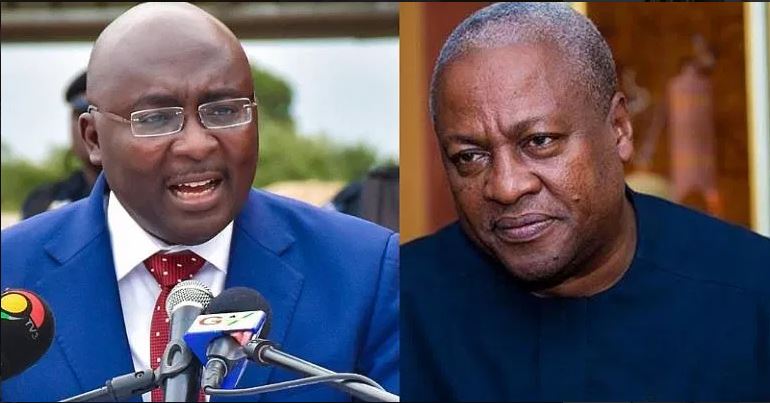
Ghana is preparing for a significant presidential transition as President Nana Akufo-Addo steps down after completing his constitutionally limited second term. This transition will mark Ghana’s fifth since returning to democratic multiparty politics in 1992, highlighting the country’s institutionalized and predictable presidential succession process. Notably, three of these transitions have occurred peacefully between rival political parties, underscoring Ghana’s commitment to respecting electoral outcomes and power-sharing.
The main contenders in the upcoming 2024 elections are former President John Dramani Mahama of the National Democratic Congress (NDC) and Vice President Dr. Mahamudu Bawumia of the governing New Patriotic Party (NPP). Mahama, who served as president from 2012 to 2017, has previously graciously accepted electoral defeat and facilitated smooth transitions of power, reinforcing his democratic credentials.
According to the latest presidential poll by Global InfoAnalytics released on April 8, 2024, Mahama is leading with 54.3%, followed by Bawumia at 34.9%, Alan John Kwadwo Kyerematen of the Movement for Change (M4C) with 7.5%, Nana Kwame Bediako of the New Force Movement (NFM) at 2.3%, and other candidates at 1%. The poll indicates varying regional preferences, with Mahama leading in the North East Region while Bawumia has gained ground in the Ashanti Region.
The election is expected to be highly competitive, given recent close results and the balanced representation in Parliament. Ghana’s electoral system, known for its adherence to fairness and transparency, is overseen by the respected Electoral Commission. Continuous voter registration reforms have been implemented since 2020 to enhance inclusivity and participation.
Despite these strengths, Ghana’s democratic institutions face challenges, including occasional political interference in institutional independence and concerns over media impartiality. Economic challenges, exacerbated by global disruptions and inflation, have added complexity to the electoral landscape, prompting critical debates on policy and governance.
As Ghana navigates regional security threats and national priorities, the 2024 elections will be pivotal in shaping the country’s future trajectory. Maintaining a robust democratic process will be crucial to ensuring stability and progress amidst these multifaceted challenges.
Story by: AYM Kukah


